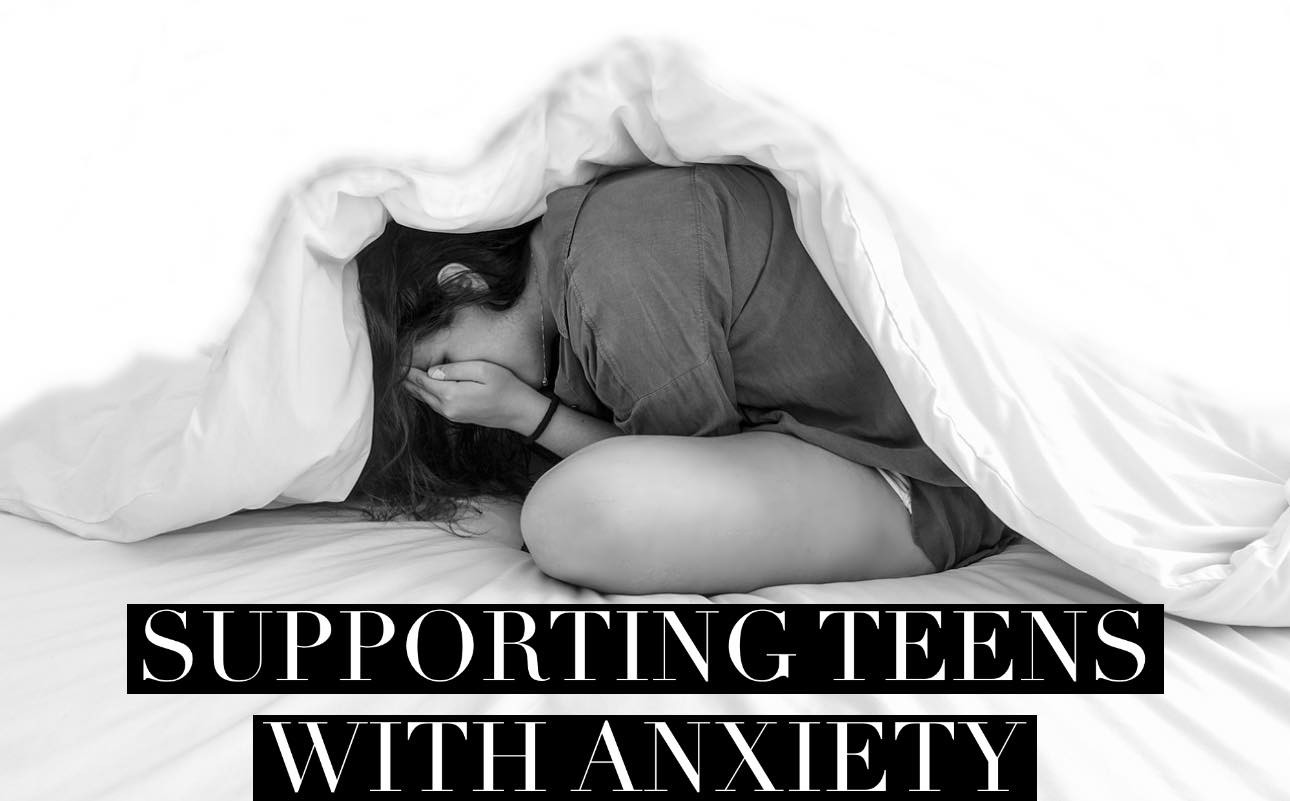
Hey there, fellow parents! As we gear up for the back-to-school season, my heart goes out to all those families who have teens dealing with anxiety. As a mom who has a 16-year-old struggling with the same, I understand the emotional journey we undergo as we support our kids through these challenging times. I see you! I understand you! I feel you!! I want to offer you some compassionate insights and practical tips to help your teens navigate their anxiety and flourish in the school environment.
1. Acknowledge Their Feelings:
Let's remember that anxiety is a real burden for our teens. Validating their emotions instead of dismissing them is crucial. Often, teenagers may hesitate to express their concerns, fearing that they'll be misunderstood or judged. As parents, we can create a safe space for open dialogue and assure them that their feelings are normal and valid. I had to learn this the hard way. I had a couple of children who struggled with anxiety and I didn't understand it. I forced them to go to school despite their emotions. I encouraged them to "find new thoughts" or "take control of their thoughts". I can tell you first hand, THAT DOESN'T WORK! It wasn't until last year, with my 5th child, that I fully started to understand the depths of what my older children were going through on a daily basis. It is a real struggle for them and the sooner we acknowledge that, the sooner we can help them through it.
2. Foster a Supportive Routine:
Routine and structure can anchor our teens amidst the whirlwind of emotions and uncertainty. Work together to establish a consistent sleep schedule, time for exercise, and nutritious meals. Encourage them to practice self-care activities that bring joy and relaxation, such as reading, painting, workouts, horseback riding or a host of other activities they might love.

3. Encourage Open Communication:
Promote open communication channels that allow your teens to express their worries, fears, and triumphs. Actively listen without judgment or interruption. Sometimes, all they need is a compassionate ear to validate their experiences and find solutions together.
4. Teach Stress Management Techniques:
Equip your teens with practical tools to manage their anxiety. Deep breathing exercises, meditation, visualization techniques, and mindfulness practices are helpful approaches to regain focus and reduce stress. Remember to lead by example and practice these techniques together as a family. In cases where therapy is necessary, make sure to work together to find a good fit. Cognitive Behavioral Therapy is a great option to help your child learn analyze their thoughts and feelings and work to determine if they are helpful and realistic or how they can begin to bring about change.

5. Explore Natural Remedies:
While there are so many choices for medications available, many of them have additional side effects. At one point I had to put my son on medications just to be able to even get him to walk into the school each day. One of the biggest side effects, however, was increase suicidal tendencies. That didn't sit well with me but for the moment we had to do it while we searched for something more natural. Other side effects he could face including irritability, anxiousness (which is what we were looking to get help with, not create more of), upset stomach and headaches, impotence (teenage boys will LOVE that I'm sure). In our search for holistic wellness, essential oils have been invaluable. We came across a blend called Peace & Calming that was specifically for calming and grounding that can support our teens. For my son, this could often calm him within minutes of applying it. Diffusing lavender or Stress Away in their bedrooms to using Roll-Ons Peace & Calming, Stress Away or Tranquil on their wrists or temples, these natural remedies can provide comfort during stressful moments. There are also some supplements that we came across that have helped dramatically and I will write about those in the near future.
6. Foster a Supportive School Environment:
It's essential to communicate with your teen's school and teachers to ensure they understand your child's anxiety challenges. Together, create a plan that includes appropriate modifications or accommodations to help your teen thrive academically and emotionally. Encouraging peer support, connecting with school counselors, or seeking out extracurricular activities that align with their interests can also contribute positively to their well-being. I believe it's very important for the school administration and teachers to know that you are being an active part of your child's education and that you will continue to be an advocate for them.
A 504 plan might be a good option for your child. A 504 is different than an IEP in that 504 is going to be less structured and not part of the special education program at the school. A 504 can help with the classroom environment including a different desk placement, headphones or the ability to use music while doing classwork, extra time for tests and assignments, frequent breaks or a place where the student can go to get away. We were instrumental in creating something in our school called a Home Room. This room is near the therapist and guidance counselors offices and is a quite room with dim lights, bean bags, where the kids can just go and sit for a few minutes if they are overwhelmed or just need a break. We have found that since the implementation, many students have used it with great success.
Unlike an IEP that has specific guidelines set out by IDEA and is about your child's special education needs, a 504 is about how the school is going to make accomodations for your student. IEPs only deal with 13 disabilities and conditions, whereas a 504 is for ANY disability that the student, family and school believes interferes with the child's learning. Mental health conditions such as anxiety, depression, OCD, can all all under a 504, as can autism and ADHD, but those last two can also fall under the IEP. For more information on IEP and 504 and how they differ, click here.
Supporting our teenagers through anxiety is a journey that requires patience, empathy, and compassion. Remember that progress happens step by step, and each effort counts. By acknowledging their feelings, fostering a supportive routine, promoting open communication, teaching stress management techniques, exploring natural remedies like Young Living essential oils, and nurturing a supportive school environment, we can help our teens build resilience and thrive in their educational journeys. Let's walk alongside our kids, reminding them they are never alone. Together, we will overcome any challenges that come our way.
Join me tomorrow when we talk about the importance of self care for you as you help your child!
Join me tomorrow when we talk about the importance of self care for you as you help your child!
xoxo,
Dr Kelly
Disclaimer: This post is for informational purposes only and should not substitute professional advice. If your teen's anxiety persists or worsens, please consult with a qualified healthcare professional.



0 Comments